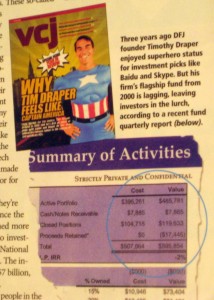“Spengler” is sometimes brilliant but sometimes he is way off the mark. His December 25 column strikes me as an instance of the latter.
The United States lived in Lever-Lever Land too long. Like Peter Pan, the country has refused to grow up. The object of the stimulus plans offered by the present and the next US administrations is to return to Lever-Lever Land, that is, to debt-financed consumption. It won’t work. Leverage is for the young, who borrow to build homes and start businesses. The financial crisis forces Americans to act their age, that is, to save rather than borrow and spend.
For a world economy geared to servicing the once-insatiable maw of American consumption, that is very bad news for 2009. Recovery cannot begin until Americans have restored their decimated wealth by saving – an effort that will take years – or until the youthful emerging markets start importing from the US, rather than exporting to it.
America’s leaders haven’t yet had the required moment of clarity. Its financial leaders still think the problem is a mere matter of confidence. These were the same people who swallowed their own sales pitch.
This analysis is too deterministic, as though an aging US population made economic decline certain. What about tax-rate reductions and other productivity-boosting incentives? Animal spirits aren’t a function of youth alone, but also of having a political and social environment that encourages entrepreneurial risk-taking. Also, what’s with the disdain for debt? If you’re borrowing at X% to make a >X% after-tax rate of return you are winning the game and should borrow as much as you can. And much of the high-yield corporate debt that Spengler frets about wouldn’t be needed if the terrible Sarbanes-Oxley law hadn’t destroyed the US IPO market.
Excessively tight credit, high tax rates, excessive regulation and political uncertainty all reduce investors’ ROR and thus chill productive activity. The solution is simple if not politically easy: repeal Sarbanes-Oxley, reduce tax rates, regulation and government spending. What drove productivity increases during recent booms was an economic environment, combining tolerable regulatory and tax conditions with a competitive market for start-up financing, that made technological and business experimentation a good bet. There may indeed have been a demographic component to it all, but to focus on demographics, debt and leverage is to miss the big picture. Incremental changes in the legal and regulatory environments since Summer 2002 have gradually choked entrepreneurial incentives, and perversely led to election of a new government that promises as a matter of policy to punish business success. (And even if the Obama administration and Democratic Congress govern pragmatically and prudently, the uncertainty they’ve created with their anti-business rhetoric is costly for businesses and individuals who must make investment decisions.) Spengler misses most of this. He also fails to ask why many countries with younger populations than ours are less productive than we are. In truth, productivity is a function not merely of youthful spirits but also of human capital (education, cultural values and societal institutions), physical capital (plant, equipment and infrastructure), investment capital and markets, and of taxes and governmental policies that encourage or discourage productive activity.

